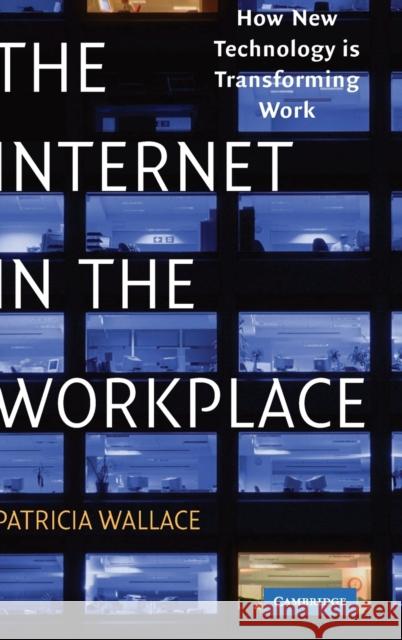The Internet in the Workplace: How New Technology Is Transforming Work » książka
The Internet in the Workplace: How New Technology Is Transforming Work
ISBN-13: 9780521809313 / Angielski / Twarda / 2004 / 301 str.
The Internet in the Workplace: How New Technology Is Transforming Work
ISBN-13: 9780521809313 / Angielski / Twarda / 2004 / 301 str.
(netto: 365,28 VAT: 5%)
Najniższa cena z 30 dni: 226,68
ok. 16-18 dni roboczych.
Darmowa dostawa!
The Internet, and all the netcentric innovations that emerge from it, have transformed the workplace and our working lives in a very short time. The net added a window to the world on worker's desks, and made 24 by 7 connectivity to the workplace a reality--blurring the line between work and time off. It triggered new styles of teamwork, new leadership challenges, new modes of communicating, new job roles and employer-employee relationships, and new, alarmingly effective tools for workplace surveillance. The capabilties offered by netcentric technologies might seem to eliminate completely the need for a physical workplace, but the workplace remains, partly because the virtual, and in fact, the physical appearance of a typical office looks about the same. Nevertheless, the psychological characteristics of the workplace have changed considerably. Workers, from the mail room clerk to the CEO, are learning new skills--to employ on the net's power but avoid the egregious blunders that the net so dramatically amplifies. In The Internet in the Workplace, Patricia Wallace demonstrates how netcentric technologies touch every kind of workplace, and explores the challenges and dilemmas they create. Patricia Wallace is Director, Information Technology and Distance Programs at the Center for Talented Youth, Johns Hopkins University. Wallace's background and career span the disciplines of information technology, psychology, education, and business. Her recent book, The Psychology of the Internet (Cambridge, 1999) has been translated into nine languages. Wallace's work has been featured often in the media, including MSNBC, CNN, ABC News, the BBC, NPR, USA Today, and the Washington Post.











